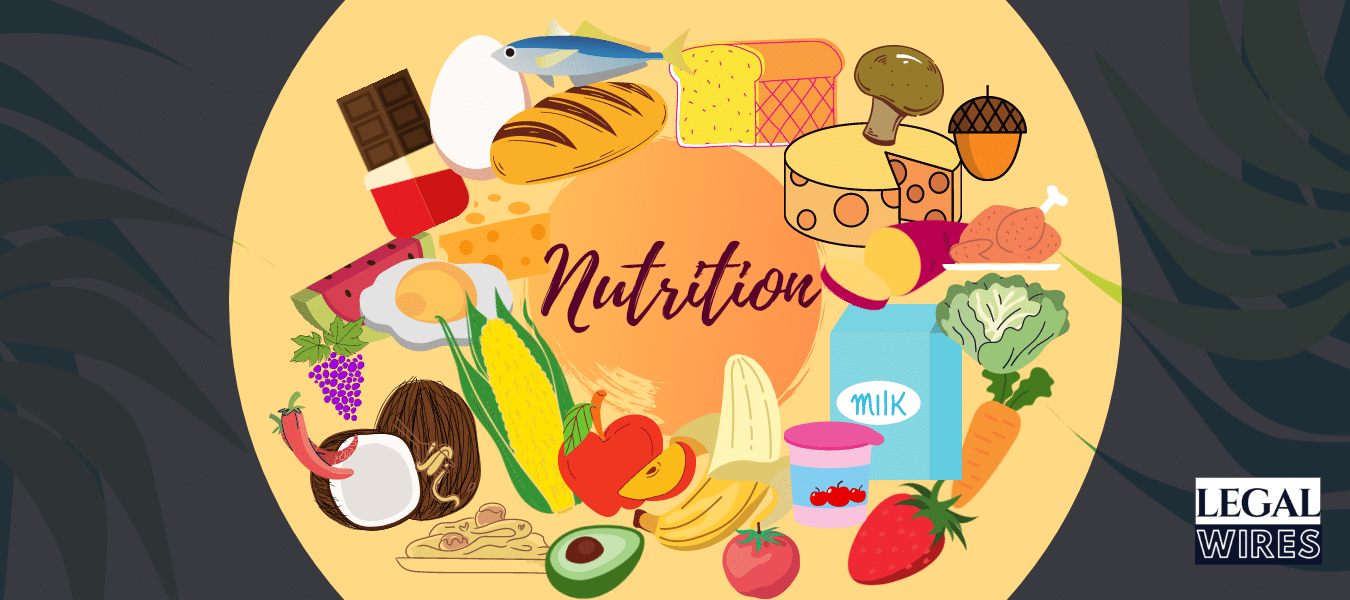The meaning of Nutrition is also associated with the study of food and how it affects the body of an organism. For effective survival, people need to consume a varied diet to obtain a wide range of nutrients.

Definition
Nutrition[1] is nourishment or obtaining energy from the consumption of food or from the process of consuming the proper amount of energy and nourishment. Essential aspects of the term Nutrition[2] are –
- The process or the act of nourishing or being nourished.The substances[3] that an organism takes into the body as food, and the way they influence their health.
Meaning
Nutrition[4] for every organism is a critical part of being healthy and for development. Better nutrition provides for improved infant, child and maternal health, stronger immune systems, safer pregnancy and childbirth, lower risk of non-communicable diseases, and longevity.
Usage
World Health Organization[5] says that healthy children learn better. People with adequate nutrition[6] tend to be more productive and are capable of creating opportunities to gradually break the cycles of poverty and hunger.
The opposite of nutrition is malnutrition, malnutrition presents significant threats to human health. Today the world faces a double burden of malnutrition that includes both undernutrition and overweight, especially in low-income and middle-income countries.
The World Health Organization is the body that is providing scientific advice and decision-making tools that help countries across the globe to take action and to address all forms of malnutrition to support health and wellbeing for all, at all ages.
The meaning of Nutrition is also associated with the study of food and how it affects the body of an organism. For effective survival, people need to consume a varied diet to obtain a wide range of nutrients.
Some people choose to follow a specific diet, in which they focus on certain foods and avoid others to do this, people may need help to plan carefully to ensure they obtain all the necessary vitamins to maintain their health, a nutritionist helps in planning their diet.
As per the World Health Organization, a diet that is rich in plant-based foods and that limits added animal fats, processed foods, and added sugar and salt is most likely to benefit an individual’s health.
The Constitution of India provides for statutory provisions that enable right to food, they are as follows
- Article 21. Protection of life and personal liberty– No person shall be deprived of his life or personal liberty except according to the procedure established by law.Article 39. Certain principles of policy to be followed by the State – The state shall, in particular, direct its policy towards securing– a) that the citizens, men, and women equally, have the right to an adequate means to livelihood;Article 47. Duty of the State to raise the level of nutrition and the standard of living and to improve public health- The State shall regard the raising of the level of nutrition and the standard of living of its people and the improvement of public health as among its primary duties and, in particular, the State shall endeavor to bring about prohibition of the consumption except for the medicinal purpose of intoxicating drinks and of drugs which are injurious to health.
The right to food[7], in India, has been one of the most contentious and highly debated issues concerning the right to development of children and most importantly, food security of the poor. With the judicious intervention of the Supreme Court, a rights-based approach to development has emerged putting aside the concept of welfare approach, according to which it is required by the State to fulfill its promises given to the citizens including children.
The right to food of children is a basic right as it is not only essential for human development but also necessary for the proper functioning of a democratic State.
Some usage in a sentence
- Bob is a professor of nutrition at Columbia University. The cafe must conform to the country’s nutrition guidelines. Although transpiration is a necessary accompaniment of nutrition, it may easily become excessive, especially where the plant cannot readily recoup itself. Plants need very considerable amounts of water for their nutrition and growth. First, nutrition is a very primitive science.
Origin
Originated[8] in the 1550 century, and meant an act or process by which organisms absorb their proper food into their systems and build it into living tissue. Roots from Old French word nutrition and from Latin word nutritionem which means nourishing.
[1] “Nutrition.” Merriam-Webster.com Dictionary, Merriam-Webster, Source Link. Accessed 15 Jun. 2020.
[2] Source Link
[3] Source Link
[4] Source Link
[5] Source Link
[6] DIETARY SUPPLEMENTS: A LEGAL STATUS IN INDIA & IN FOREIGN COUNTRIES, ISSN- 0975-1491 , Source Link.
[7] Source Link
[8] Source Link




